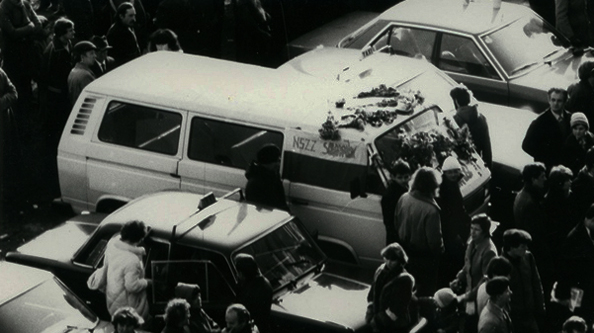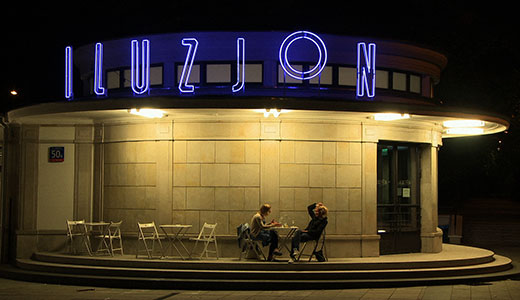So many anniversaries, such remarkable transformations—that is the story of Poland in 2014 that we are celebrating in this issue of CR. Those of us with Polish roots can mark these anniversaries in very personal ways.
For me, the 75th anniversary of the German invasion of Poland means thinking of my father who fought in a doomed tank platoon before escaping to the West, eventually joining Polish forces under British command. When he returned to Warsaw for the first time in the 1970s, he felt both excited and estranged, especially from the Communist system that had been imposed by the Soviet Union. On his first visit to the new post-1989 Poland when I was the Warsaw bureau chief for Newsweek, he marveled that he had lived long enough to return to a free Poland. That Poland marked its 25th anniversary this year.
Although I had always believed that the Communist system had to collapse at some point, I cannot claim to have predicted it would happen as quickly as it did. Or that Poland’s transformation into a modern, vibrant, free society would be so dramatic after a mere quarter of a century.
Even younger Poles, I’ve discovered, find it hard to imagine what their country was like such a short time ago. Growing up in a Poland full of shopping malls, new office and apartment buildings and easy travel to anywhere in the world, they are only dimly aware of what it was like in the age of stores with empty shelves, when the wait for an apartment often spanned not years but decades, and when only privileged Poles could travel to the West. Poland then and now aren’t just different countries: they are different planets, physically and psychologically.
I remember pre-1989 Poland all too well. My first real exposure to the country was as an exchange student at the Jagiellonian University in Kraków in the fall of 1968. That was a particularly grim year. In March, the authorities had brutally suppressed student protests, and in August Warsaw Pact troops had invaded Czechoslovakia to put an end to the Prague Spring. I remember how cold and gray Kraków looked and felt, despite its lovely buildings, and how despondent was the mood of many of the students.
Yet two decades later, Poland would become the catalyst for the seismic changes that not only brought about the downfall of the Communist regime in Warsaw but also triggered a chain reaction of events throughout the region, from the fall of the Berlin Wall to the collapse of the Soviet Union. The underlying reason for that outcome was that even in their darkest moments, a growing number of Poles continued to rebel against a system that was economically, politically and morally bankrupt. They were infuriated by an economy that couldn’t meet the most basic needs of its people, and by the empty rituals of Communist politics such as mock elections as well as the daily diet of lies about the system’s alleged accomplishments.
The Solidarity movement of the 1980s united workers, students and others for the first time in their protests. And the constellation of forces elsewhere—John Paul II in the Vatican, Ronald Reagan in the White House, and Mikhail Gorbachev in the Kremlin—aligned in such a way to frustrate those Communists who wanted to crush the push for freedom by force as they always had in the past. True, Gorbachev believed he would be able to save the Soviet empire by liberalizing it; if he had known where his policies would lead, he might never have embarked on that path. To his credit, though, he refused to roll in the tanks when events spun out of his control.
Then came Poland’s post-1989 success story, which is every bit as worthy of attention as the defeat of the old regime. Let’s assume for a moment that a young Pole fell asleep in 1988 and didn’t wake up until today. Of course, he would be shocked by the traffic jams and the abundance of every kind of consumer product. But he would be even more shocked to learn that Poland celebrated its tenth anniversary as a member of the EU this year, and fifteenth anniversary as a member of NATO. And that Poles no longer see themselves as sullen subjects of a police state that took its orders from the Kremlin but as full-fledged citizens, who can freely debate every issue in print and on the air, and vote any way they please.
Welcome to the new Poland. Its rich history is still visible at every turn, but pay particular attention to what has happened most recently. Countries usually transform themselves over long periods of time. Poland did not have that luxury. Poles were impatient to make up for lost time—and they have done so with astonishing speed. Whatever failures, frustrations and fears they may experience now or later, no one should lose sight of that fact.
CR




Pingback: Welcome to our 2014 Fall-Winter Issue!
Pingback: Fall-Winter Version of the Cosmopolitan Evaluate | Posts